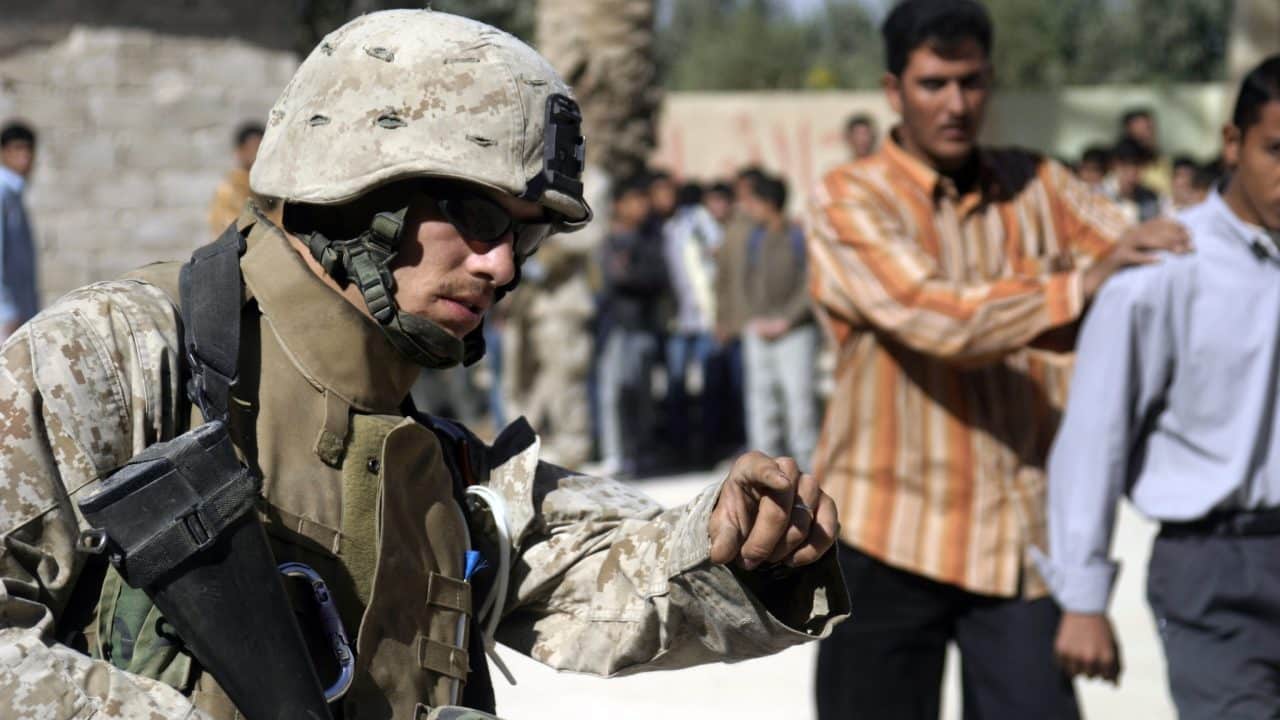Also read “An Introduction to Strategic Leadership: Part I” and “Intro to Strategic Leadership Part II: Military Leadership.“
__________________
A crucial tenet of being a successful strategic leader, especially in global security, is cultivating and maintaining cultural competency (Willis 2008). One cannot develop and preserve strategic partnerships or alliances diplomatically, militarily, or in business without a healthy knowledge and understanding of the culture of the states or groups that one is allying themselves. Conversely, cultural ignorance, apathy, and misunderstandings can quickly erode or damage these partnerships and even devolve into a new rivalry or another source of conflict. Unfortunately, Western states’ relations in the Middle East are rife with examples of this from modern history.
The Middle East’s culture revolves around three major areas: the city, the tribe, and the desert (Greaves 2012). T.E. Lawrence had a firm understanding of the latter when he unified the Bedouin tribes of the Arab Peninsula against the Ottoman Empire during World War I (1976). As a result, Lawrence shed, or at least concealed, his Western ideas and hubris and assumed a more humble personality to better assimilate into the culture of the tribes he would be leading and fighting alongside. This openness and acceptance of a vastly different culture led to great success on the battlefield and the formation of the Arab state.
Conversely, the former Coalition Provisional Authority (CPA) head, Paul Bremer, did not follow the example set by Lawrence, resulting in exponentially increased challenges and conflicts during the post-U.S. invasion reconstruction of Iraq. The two most critical failures that demonstrated a lack of cultural understanding were the de-Ba’athification of Iraq and disbanding of the military (Pfiffner 2010). Like many socialist and Communist-modeled governance systems, party affiliation was vital to employment and promotion; one could not rise to senior levels of government or industry without Ba’ath Party membership.
Additionally, removing and villanizing these individuals from government to academia left vast voids in the senior leadership of these various institutions that the CPA nor the new Iraqi government could effortlessly fill Pfiffner 2010; Gusterson 2012). Similarly, the Iraqi military’s disbanding destroyed Iraq’s existing defense and security infrastructure, resulting in increased instability, insecurity, and insurgency (Pfiffner 2010). The instability and insecurity drove the Iraqis to turn away from the U.S. and multinational forces and rely on their traditional source of governance and protection, the tribe. Unfortunately, this choice renewed centuries-old tribal and sectarian rivalries that further increased the violence and instability.
In closing, the two examples of Bremer in Iraq and Lawrence in the Arab Peninsula represent how cultural competence is integral to effective and successful strategic leadership. Where Bremer ignored or rejected the cultural elements crucial to the rebuilding and democratization of Iraq, Lawrence fully embraced the Bedu culture to accomplish his mission. Another example of this dichotomy between the two leaders is that Bremer doubled down on his decisions. Conversely, when Lawrence returned to the U.K., he viewed Western society through “different eyes” (Pfiffner 2010; Lawrence 1976).

References:
Greaves, Sheldon. 2012. “A Primer of Middle Eastern Leadership Culture.” Journal of Strategic Security 5 (4): 99–117. doi:10.5038/1944-0472.5.4.7.
Gusterson, Hugh. 2012. “An Education in Occupation.” The Radical Teacher, no. 94 (2012): 58–60. https://doi.org/10.5406/radicalteacher.94.0058
Lawrence, T. E.. 1976. Seven Pillars of Wisdom. Newburyport: Open Road Integrated Media, Inc.
Pfiffner, James P. 2010. “U.S. Blunders in Iraq: De-Baathification and Disbanding the Army.” Intelligence & National Security 25 (1): 76–85. doi:10.1080/02684521003588120.
Willis, Rhondra O. 2008. “LEADERSHIP IN A GLOBAL SOCIETY.” Journal of Leadership, Accountability and Ethics (Fall): 72-77
_______________________
Ben Varlese is a former U.S. Army Mountain Infantry Platoon Sergeant and served in domestic and overseas roles from 2001-2018, including, from 2003-2005, as a sniper section leader. Besides his military service, Ben worked on the U.S. Ambassador to Iraq’s protective security detail in various roles, and since 2018, he has also provided security consulting services for public and private sectors, including tactical training, physical and information security, executive protection, protective intelligence, risk management, insider threat mitigation, and anti-terrorism. He earned a B.A. and an M.A. in Intelligence Studies from American Military University, a graduate certificate in Cyber Security from Colorado State University, and is currently in his second year of AMU’s Doctorate of Global Security program.
As the Voice of the Veteran Community, The Havok Journal seeks to publish a variety of perspectives on a number of sensitive subjects. Unless specifically noted otherwise, nothing we publish is an official point of view of The Havok Journal or any part of the U.S. government.
Buy Me A Coffee
The Havok Journal seeks to serve as a voice of the Veteran and First Responder communities through a focus on current affairs and articles of interest to the public in general, and the veteran community in particular. We strive to offer timely, current, and informative content, with the occasional piece focused on entertainment. We are continually expanding and striving to improve the readers’ experience.
© 2024 The Havok Journal
The Havok Journal welcomes re-posting of our original content as long as it is done in compliance with our Terms of Use.



